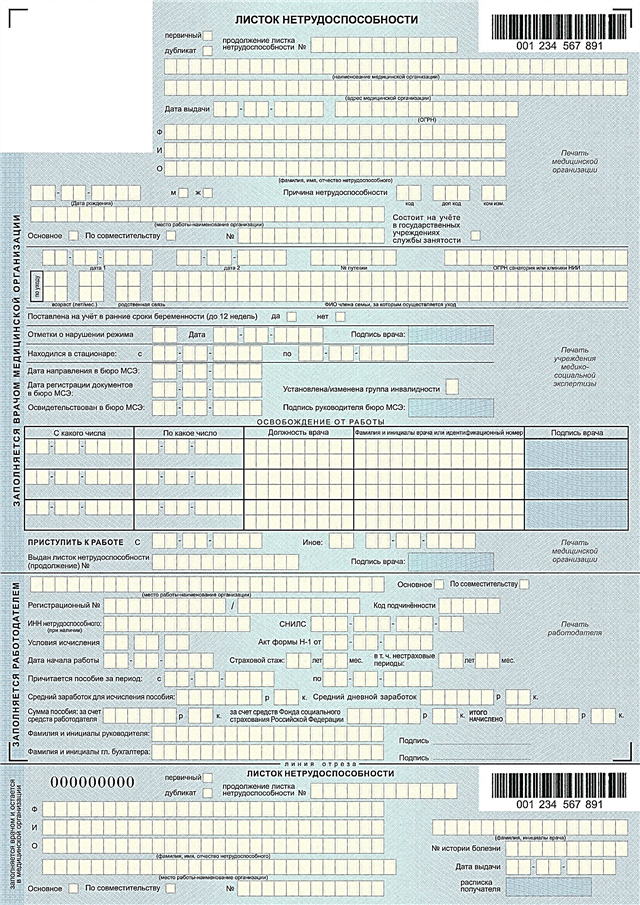Phrases that should not be spoken to children: popular expressions that fly out "automatically" and traumatize, not raise a child. What harm do certain phrases do and how to avoid them.
Many "educational" phrases from us, parents, fly out just automatically. We heard them from our parents, and now our children hear them from us. Without trying to "filter" our speech, we can cause significant harm to the child, because all our intimidation, reproaches and warnings will forever remain a "voice in his head", which at the most inopportune moment can lead a person out of his way, make him give up something important and meaningful in his life. Let's try to figure out what the child is "programmed" for and what the well-known parental words lead to.

1. "If you do not obey - I will give you to a neighbor", "You will not sleep - a gray wolf will take you away", "If you run away, an evil uncle will take you and take you with him"
Different situations, different phrases, but one essence - to frighten the child in order to achieve obedience. It works flawlessly, because the worst thing for a child is to be separated from his mother, but it has a significant “side effect” - from these horror stories, the child may simply develop neurosis. Such words do not teach the child to understand why it is dangerous to run away or to disobey his mother - they simply instill fear. Frightening a child with babies, evil guys and other characters, we can make him a neurotic who will be afraid of any rustle, but will not understand what needs to be done to avoid danger. It is better to explain to the child in a comprehensible way why he should do something, and what will happen if not.
2. "If you eat badly, you will not grow up (you will be weak, girls will not love, etc.)"
This is the same horror story, because we are again trying to intimidate the child with some bad consequences from his actions. If you want to instill in your child healthy eating and eating habits, find something that will truly motivate, not intimidate. Alternatively: tell stories about heroes who defeat villains only because they eat healthy porridge in the morning, or set an example of a strong and brave dad who never refuses a delicious lunch.
3. "If you make faces, you will forever remain with such a face", "If you pick your nose, you break your finger"
Children are children for that, to grimace and mischief, but sometimes this is not at all appropriate, so such habits must be gently corrected. It is completely pointless to intimidate a child with something that will never happen in life, so we choose a different tactic: we tell the child why it is not right to rage, grimace and pick his nose. For persuasiveness, we can say that real heroes grow up only from obedient and diligent kids, and as an example, we can name positive characters from your favorite cartoon.
4. "Well, why are you so awkward, you always break everything", "Don't bother, I'll do it myself", "Your hands are inserted at the wrong end"

According to parents, this harsh criticism is designed to help the child become independent, learn to do something on his own, not break or spoil things. Understand: breaking a new toy, spilling milk or breaking a plate, the child really wants to learn to be independent, but he is still too young and he needs help. When, in response to his actions, he hears such things, on the contrary, he gives up: why do something, if I still do it badly and my mother scolds me. From such children, apathetic and lack of initiative then grow up, who in all seriousness consider themselves incapable losers and do not even get down to business. Instead of criticism and censure, parents are required to be patient and willing to help when the child asks for it - the rest will come by itself.
5. "Vanya has already finished his porridge, and you are still digging", "Everyone has normal children, and you are forever ...", "Aunt Masha Petya is studying for one A, and you ..."
Such phrases will never induce a child to pull up studies or achieve something, because for a child they are a sign that parents love him not for himself, but for his achievements. Comparing children is generally not effective: all children are different, with different abilities and capabilities. A child can reveal his talents to the maximum only when he is sure that he is loved and accepted by anyone: slow, unsportsmanlike, with triplets in his diary. It is on this acceptance and support that the emphasis should be placed. Otherwise, self-esteem falls, the child may withdraw into himself and really dislike the object of comparisons.
6. "You are the best among us", "No one from your class even holds a candle to you"
It is clear that for any parents their child is the best, but being the best and most beloved for mom and dad and being better than all other people are two different things. Someone will object: “But you need to praise the child ?!”. It is necessary, but such statements are not praise, but just empty praises that give rise to a child's "star fever". Meanwhile, he will have to live in a world where no one will admire him and consider him the best. Starting from school, the child is assessed: first by the teachers, then by the teachers at the school or university, then by the potential employer. None of them will express violent enthusiasm and consider the grown child unique, irreplaceable and the very best. In addition, the child is also not stupid, and if he understands that he is objectively “losing” to someone in something, such statements will only generate disappointment: mom and dad are lying to me, I’m not the best. If you want to praise, you need to praise for specific deeds and actions ("You are such a good fellow that you wrote a test for the five"), and that the child is the best is better to say only in the context of the fact that he is the best for mom and dad.
7. "Until you eat, you won't go for a walk", "Until you collect toys, I won't turn on cartoons"
Until a certain point, an attempt to "bargain" with the child will bear fruit in the form of the desired behavior. But children grow up and learn, first of all, from their parents. At an older age, the child will begin to "bargain" with his parents in the same way: I will study if I buy a new phone, wash the dishes, if I let go for a walk, etc. The quid pro quo tactic generally distorts the child's idea of why certain things need to be done: for example, toys need to be collected so that the room is tidy, and not so that the mother will be merciful and turn on the cartoon, but with this tactic the child will not learn this. If a child should or should not do something, then you just need to explain your position, and not bargain the child for the desired behavior in exchange for concessions and permissions.
8. "I won't go anywhere with such a grimy child", "I won't love you so harmful."

As usual: the goal is obedience and the necessary behavior, but a means from the category of life-crippling ones. The fact is that a child needs confidence in his mother's love without any conditions. Such phrases say the opposite: they love the child, but only good, obedient, calm, clean, etc. It turns out that the task of the child in this case is not to be himself, but to meet parental expectations. And where do you order the child to do with his other no less natural manifestations: whims, tears, discontent? All this goes into self-doubt, fears and resentments that the child will carry through his whole life.
 9. "Why did I give birth to you at all", "It would be better if we had a girl / boy"
9. "Why did I give birth to you at all", "It would be better if we had a girl / boy"
Most often, such phrases fly out in moments of intense anger, when parents cannot cope with their emotions. For a child, these are very scary words, because at this moment the parents reject him at the level of existence, giving the message: "It would be better if you weren't there." It is simply unbearable for a child to live with such a burden, because parents for him are his whole world, and this world does not seem to need him.
10. "I didn't make a career because of you", "If it weren't for you, we would have vacation at sea every year"
Of course, the child greatly changes the life of the family and the priorities of the woman, but the child himself is not to blame for the fact that his appearance violated someone's plans. You are an adult and you are responsible for your life, not a defenseless and dependent creature. Such phrases "reward" the child with the burden of responsibility for the life of parents and a sense of guilt, for their unfulfilled dreams and plans.
11. "It doesn't matter to me what you want there, do as I said", "Who asks you at all", "I said so, then so"
Not the most successful attempt to show firmness of will and character. Such orders without trying to discuss and hear the child's opinion is very tough pressure, and the more pressure, the stronger the resistance. Insisting on your own, always explain to the child why it should be so, and sympathize if his desires do not coincide with the need to do something, and someday just let the child make his choice - so he will learn to decide for himself what he needs, and argue your position. Otherwise, extremes may await you: from a weak-willed person, unable to solve anything, because his mother always decided everything for him, to a desperate rebel, who in any situation "bends his line" and does not hear anyone.
12. "How you worn me out, probably the pressure has risen", "You are yelling so that my head is cracking from you", "If you behave like this, I will be upset and ill"
These phrases are an attempt to play on the child's fear of losing his mother. Manipulating this fear is very dangerous, because in this way you put the child in charge of his life and health. In this situation, if something really happens to you, the child will live his whole life with the belief that it happened through his fault. If you need to reassure a child, methodically explain to him why it is impossible to shout, stomp, knock, throw a ball at home, etc. This will take more effort and time, but will not harm or injure the child.
13. "Better not to catch my eye", "Disappear so that I don't see you here at all"
With these phrases, you also reject the child, and for him it is very scary and painful. When you are unable to cope with your emotions, act as in a plane crash: you must first put on the "oxygen mask", and only then take care of the child. Your "oxygen mask" can be going to another room, slowly counting to 10, a sip of water, that is, something that will return you to a normal state in which you will not say such things for sure.
14. "Yes, take it, just leave me alone"
If there are any prohibitions for a child, they must be "iron". Similar phrases are heard when the mother resisted for a long time, and then gave up, if only the child was left behind. At this moment, the baby begins to understand: "If you cannot, but ask for a long time or cry pitifully, then you can." For a child, this means that any prohibition can be broken by some effort, and you yourself dig this pit of manipulations and destroyed prohibitions.
15. "If you do it again, you won't see cartoons again", "If you say that word again, you will be left without walks"
The main problem in trying to punish a child with deprivation of something is that these threats often do not come true. This means that after a couple of such cases, the child will not even react to these words: all the same, the mother will not do anything. Either keep your word (but then choose a punishment appropriate to the situation), or don't shake the air in vain.
16. "Calm down now", "Come on quickly shut up!", "Stop okay"

These rude shouts are more reminiscent of elements of training, and not communication with a beloved child. Even a small child is already a person who must be respected, and communication in this tone is not associated with respect in any way. Keep in mind that every rude word spoken to a child will come back to you in the future with even greater rudeness and disdain.
17. "I found why to cry, what nonsense!", "Well, what are you nuns for a trifle"
Adults and children look at things differently, so little things can really be a tragedy for a toddler. With such phrases, you devalue his feelings and show that his problems seem funny to you. At the same time, the child does not receive understanding and acceptance, remains unheard and learns to hide his true feelings: there is no one to pour them out anyway.
18. "I won't buy you anything, I have no money"
 Shopping trips are often accompanied by different "buy" by the child, and adults often stop this begging with one phrase "no money". A child from this situation only tolerates that his parents are losers who cannot buy him anything. It is better to teach a child to control his desires not by a lack of finances, but by the understanding that, for example, eating a lot of sweets is harmful, and buying another transformer when there are already 10 of them is not reasonable. To do this, you need to logically explain your refusals, and not dismiss the phrase “no money”.
Shopping trips are often accompanied by different "buy" by the child, and adults often stop this begging with one phrase "no money". A child from this situation only tolerates that his parents are losers who cannot buy him anything. It is better to teach a child to control his desires not by a lack of finances, but by the understanding that, for example, eating a lot of sweets is harmful, and buying another transformer when there are already 10 of them is not reasonable. To do this, you need to logically explain your refusals, and not dismiss the phrase “no money”.
19. "Don't make up your mind, there is no one there", "Stop crying, there is nothing wrong in the dark"
Children have a violent imagination, so there are always some fears: rustles, shadows, darkness, monsters under the bed and babies in the closet. These fears are normal baby feelings that are important to accept, not ignore. Calm down the baby, check and make sure with him that there is nothing to be afraid of. By brushing off the child and even scolding him for his fears, you only push him to not share anything and keep everything to himself. Sometimes childhood fears that have not been lived turn into serious phobias that will poison life even in adulthood.
20. "Oh, how ill-mannered you are", "Oh, you are greedy", "Oh, how dirty, like a pig"
All these phrases are negative evaluative in nature, for the child this is the message "I am bad." In general, it is very strange to condemn a child for any imperfections, because he is the way you bring him up. If you want your child to grow up cultured, generous and neat, teach him this yourself, show him how to behave, and do not criticize.
What words cannot be said to children. The scariest phrases a child can hear from a parent. How words affect children - https://razvitie-krohi.ru/psihologiya-detey/kakie-slova-luchshe-ne-govorit-detyam.html
5 most unfair and offensive phrases from parents that children can hear - https://razvitie-krohi.ru/psihologiya-detey/5-samyih-nespravedlivyih-i-obidnyih-fraz-ot-roditeley-kotoryie-mogut-uslyishat- deti.html
15 phrases that a child should hear every day from mom and dad - https://razvitie-krohi.ru/psihologiya-detey/15-fraz-kotorye-rebenok-dolzhen-slyshat-ezhednevno-ot-mamy-s-papoj.html
- Do you scold your little robbers for their antics?
- Top 10 Parenting Mistakes in Parenting;
- How we “lose” our children;
- Why do we yell at our children?
- 5 alternatives to say NO to your child;
- 7 things we hurt our children with
Many of these phrases seem harmless and even useful, but now we see how they affect the child and what results they can lead to. It is not easy to get rid of the habit of telling a child all these things, but if you realize their harm and make an effort, you can eradicate these educational clichés from your speech and thereby save the child from mental trauma.



